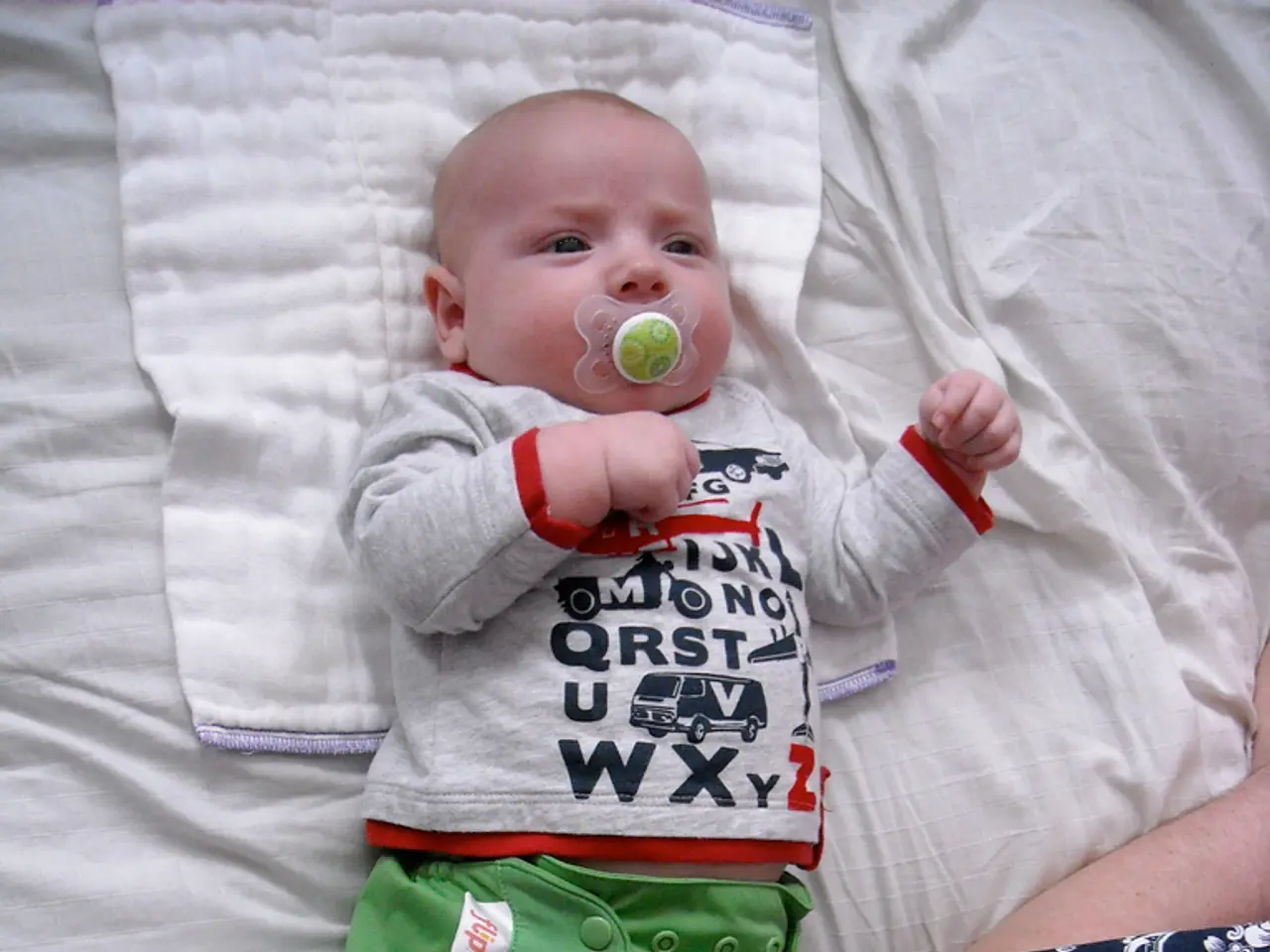Babies, Pacifiers, and Teeth: Everything You Need to Know
Digging Deeper into Infant Dental Matters: Understanding Pacifiers' Impact on Tiny Mouths and Teeth Development
As a parent, dealing with a grumpy baby can be a challenge. One of the first tools you might reach for is a pacifier. These tiny devices can calm an infant, but they've been the subject of much debate. Some parents swear by them, while others worry about the impact on baby's oral health. Let's dive into the world of pacifiers, baby teeth, and the effects they may have on your little one's future smile.
Pacifiers: A Comforting Companion
For many babies, sucking is a natural reflex. It's a built-in way to feed, soothe themselves, and find comfort. And when they're born, pacifiers are a comforting extension of this behavior. Studies suggest that sucking on a pacifier can help babies relax and release endorphins, making them feel secure.
But what happens when your baby bites down on that pacifier? Let's find out.
Tiny Gums and Teeth: The Science Behind It
Baby teeth start appearing around six months of age. During this period, referred to as teething, babies can be quite grumpy, drooling and seeking comfort through sucking. So, could pacifiers actually affect these tiny teeth as they emerge?
According to the American Dental Association (ADA), pacifiers typically don't pose problems in a baby's early stages, as long as they are used in moderation. A baby's mouth is still developing, and the pressure from pacifiers on the gums and teeth is relatively mild. However, there are a few factors to keep in mind.
The Risks of Prolonged Use
While pacifiers are generally safe, extended use past age 2 or 3 can lead to some complications. These include:
- Dental Malocclusion: Prolonged use of pacifiers can alter the alignment of baby teeth, leading to overbites and open bites. This is similar to thumb-sucking, which can also affect tooth alignment.
- Bite Problems: Over time, pacifier use can contribute to bite issues such as anterior open bite, where the top and bottom teeth don't meet properly when the child closes their mouth. This can make it hard for the child to chew food properly and may require orthodontic treatment in the future.
- Speech Development Delays: Constant pacifier use can interfere with speech development, making it difficult for your child to learn how to speak clearly.
The Benefits of Pacifiers
Despite the risks associated with prolonged pacifier use, babies can still benefit from them in the early stages. In fact, pacifiers may help reduce the risk of sudden infant death syndrome (SIDS). According to the American Academy of Pediatrics (AAP), offering a pacifier during naps and bedtime for babies under one year old may help reduce the risk of SIDS by keeping the baby's airway open.
And when they're teething or feeling uncomfortable, pacifiers can provide much-needed relief. Unlike thumb-sucking, which can be harder to break, pacifiers can be easier to remove and phased out when the time is right.
Weaning Time: When to Say Goodbye
If you've decided it's time to wean your baby from the pacifier, it's essential to do so gradually. Dentists recommend stopping pacifier use by age 2 to avoid any long-term dental consequences. Here are some tips for easing your baby off the pacifier:
- Gradual Reduction: Start by limiting pacifier use to certain times of the day, such as nap time or bedtime. Slowly reduce these instances over time.
- Positive Reinforcement: Offer rewards or praise when your baby uses the pacifier less frequently or stops asking for it. Make the process a positive experience.
- Substitute with Comforting Items: Replace the pacifier with other comforting items, such as a favorite stuffed animal or blanket, to help your baby self-soothe.
- Patience: Be patient as your baby adjusts to life without the pacifier.
The Bottom Line on Pacifiers and Baby Teeth
Pacifiers can be beneficial for soothing a fussy baby, but dental health is essential. In moderation, pacifiers are generally safe and can even reduce the risk of SIDS. However, extended use beyond infancy can have negative effects on tooth alignment and dental health.
The key is balance: use pacifiers to comfort your baby, but be mindful of how long they're used and when it's time to wean. And, as always, consult with your pediatrician or dentist for personalized advice regarding your baby's oral health.
[1] CDC.gov. (2021). Pacifier use and dental health. [2] Healthychildren.org. (2021). Thumb and finger sucking. [3] WebMD.com. (2019). Pacifier use and oral health in children. [4] AAP.org. (2020). SIDS and other sleep-related infant deaths: updated 2020 recommendations for a safe infant sleeping environment. [5] NIH.gov. (2021). Orthodontic pacifiers to reduce dental malocclusions.






